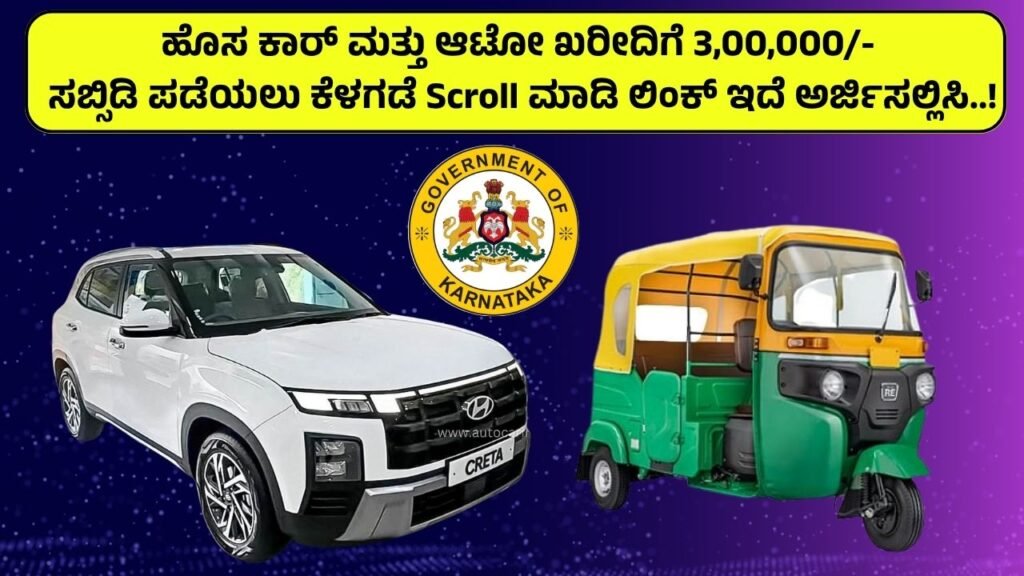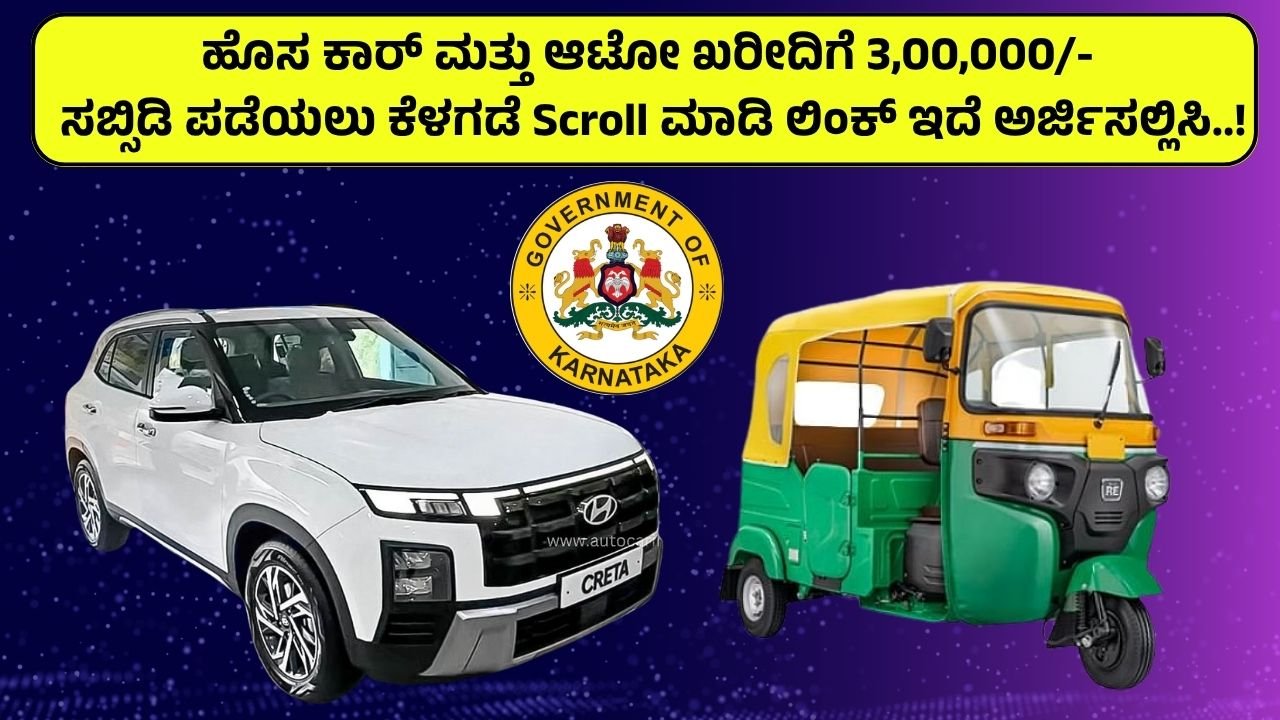Introduction:
The Swavalambi Sarathi Yojane, implemented via the Karnataka Minorities Development Corporation (KMDC) and allied boards, aims to promote self‑employment by subsidizing commercial vehicle purchases, especially for marginalized communities

Benefits & Subsidy Structure
- Passenger auto‑rickshaw: fixed subsidy of ₹75,000
- Taxis or goods vehicles: 1,50,000/-
The subsidy covers only the vehicle cost; beneficiaries must finance the rest via bank loans or personal funds
Eligibility Criteria
- Must be a permanent resident of Karnataka.
- Age between 21 and 55 years.
- Must belong to SC, ST, OBC, or Minority community (religious minority recognized in state)
- Annual family income must be under ₹3 lakh
- Must hold a valid driving license.
- No government employment in immediate family, and no prior vehicle loan benefit under similar KMDC/state schemes in the last five years
- Must not be a loan defaulter
Application Process & Documents
- Applications are submitted online via the KMDC portal (kmdconline.karnataka.gov.in) or relevant development board websites
- Required documents: Aadhaar, caste/income certificate, driving license, bank passbook, vehicle quotation, passport‑size photos, domicile certificate, and affidavits declaring non‑availment of other government vehicle loans and agreement not to transfer the vehicle during loan tenure
- A district selection committee, overseen by the District Manager, verifies applications and finalizes beneficiaries. Vehicles must display “Subsidized by KMDC”
Impact & Challenges
- Scheme targets unemployed youth and aims to support self‑employment via transport services. It has seen overwhelming demand, with far more applications than the original projected beneficiaries in certain districts
- Common challenges include lack of awareness, delays in verification, technical glitches on the portal, incomplete documentation, and coordination delays between dealers and banks
🚍 Shakti Scheme: Free Bus Travel & Its Effect on Auto Drivers
Launched on June 11, 2023, the Shakti Scheme offers free bus travel for women (and transgender persons) on all four state road transport corporations (KSRTC, BMTC, NWKRTC, KKRTC)
Scale and Reach
- Within two years, over 500 crore pink‑ticket journeys were issued across Karnataka—supported by ₹12,800–₹12,699 crore of government funding
- Daily ridership rose from ~85 lakh to over 1 crore passengers
- In Mysuru district alone, 31.04 crore women benefited out of 46.67 crore total passengers between June 2023 and June 2025
Impacts on Auto‑Rickshaw Drivers & Private Bus Operators
- Auto drivers in Bengaluru and other areas have reported a 30–40% decline in business, especially in ride-hailing apps and short trips
- Private bus operators in rural and certain regions (Malnad, coastal, Mysuru) have also suffered revenue loss due to women shifting to free state‑run buses
Operational Challenges
- Overloaded public buses—longer boarding times, difficulty in verifying digital ID cards, and increased burden on conductors issuing zero‑fare tickets
- Experts highlight severe fleet shortages, especially at BMTC: Bengaluru’s capacity remains far below the ideal level of 14–15k buses compared to current numbers (~5,600–6,600 operational)
Mixed Reception
- Users and supporters see it as empowerment for women, enabling savings, better employment access, and social mobility
- Critics argue the scheme unduly burdens non-beneficiary passengers and cadres like men and schoolchildren who still must pay and face overcrowding challenges
🔎 Summary
The Swavalambi Sarathi Scheme offers a robust pathway for eligible applicants to own commercial vehicles through substantial vehicle purchase subsidies—particularly targeting OBC, minority, SC/ST youth. Meanwhile, the Shakti Scheme has transformed mobility for women in Karnataka, delivering more than 500 crore free journeys, while ironically impacting the livelihoods of auto‑rickshaw drivers and private bus operators.
